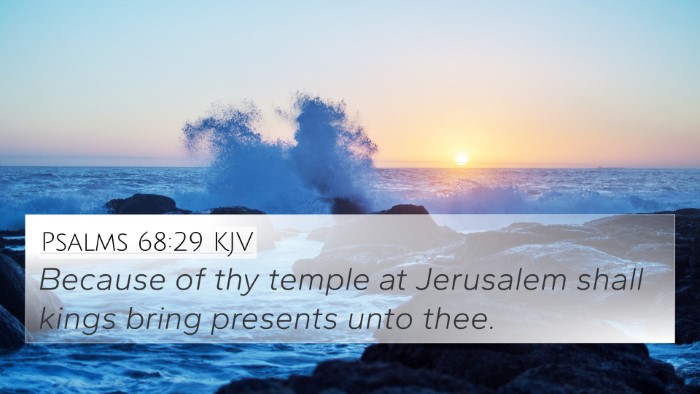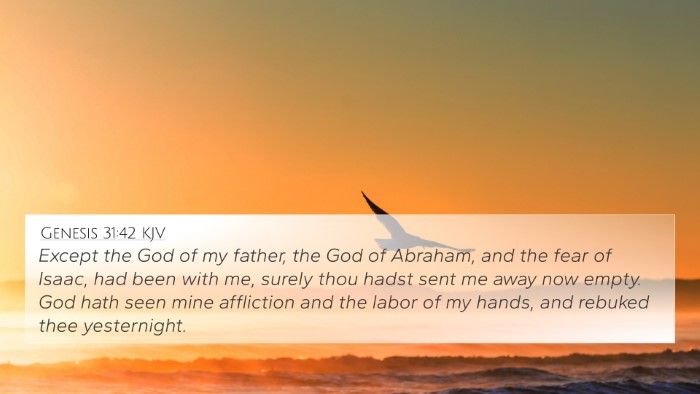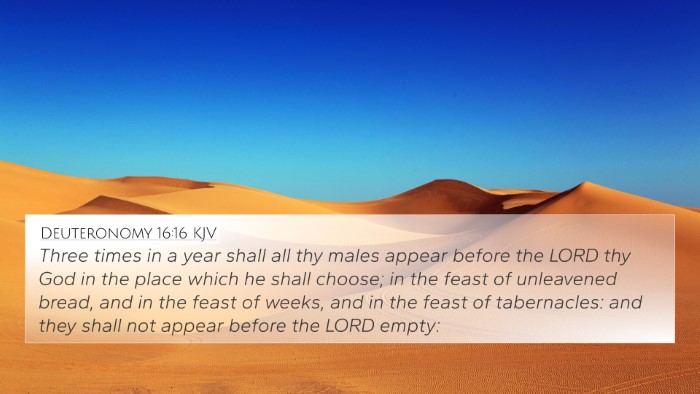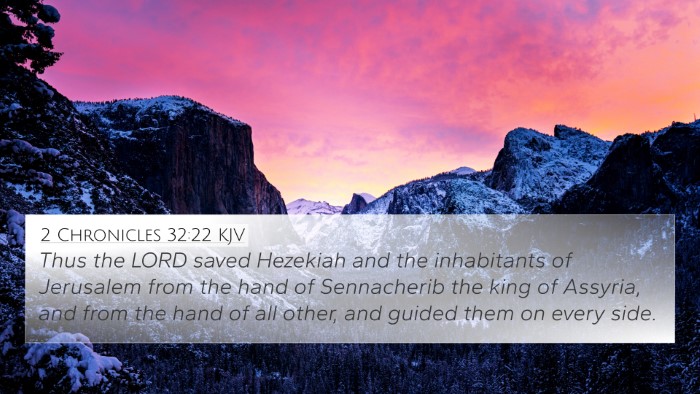Understanding Psalms 76:11
Psalms 76:11 states: "Vow and pay unto the LORD your God: let all that be round about him bring presents unto him that ought to be feared." This verse is rich in meaning and provides insight into the nature of God and the proper response He expects from His people.
Summary of Meaning
The central message of this verse is a call to reverence and obedience towards God. It emphasizes the importance of fulfilling commitments made to God, exemplifying the seriousness with which one should approach their vows and offerings. The language used denotes a sense of awe that should accompany worship.
Commentary Insights
Matthew Henry's Commentary
Matthew Henry emphasizes that this verse serves as an admonition to acknowledge God’s sovereignty and to present ourselves before Him with humility, recognizing His greatness. He points out that vows made to God should be honored, as they are sacred commitments.
Albert Barnes' Commentary
Albert Barnes reflects on the pilgrimage aspect of this verse, highlighting that the call to bring presents to God stems from an understanding of His majestic and fearsome nature. He reinforces the need for believers to respect their obligations and offer gifts—both material and spiritual—as an act of devotion.
Adam Clarke's Commentary
Adam Clarke points to the broader context of worship practices during ancient times, elucidating that the act of offering was essential in recognizing divine authority. He adds that the verse stresses the idea of fear (reverence) towards a God who is just and powerful.
Thematic Connections
This verse can be connected with various other scriptures that echo similar themes of reverence, worship, and promise to God. Here are some significant cross-references:
- Deuteronomy 23:21 - Highlights the importance of fulfilling vows made to God.
- Ecclesiastes 5:4-5 - Advises against making hasty vows and stresses the importance of honoring them.
- Psalm 50:14 - Calls upon believers to offer sacrifices and fulfill promises to God.
- Psalm 96:8 - Speaks of bringing offerings and worshiping God in the beauty of holiness.
- Hebrews 13:16 - Encourages believers to do good and share, as such sacrifices please God.
- Romans 12:1 - Invites believers to present their bodies as living sacrifices to God.
- Isaiah 57:15 - References God’s dwelling with the humble and contrite in spirit.
- 1 Chronicles 16:29 - Instructs to give unto the Lord the glory due to His name and bring an offering.
- Philippians 4:18 - Paul speaks of offerings made to God, which are pleasing and acceptable.
- Matthew 5:23-24 - Teaches about reconciling with others before presenting offerings to God.
Exploring Cross-Referencing Tools
To delve deeper into Bible verse connections, various tools can aid in cross-referencing biblical texts:
- Bible Concordance: A comprehensive resource that lists Bible verses alphabetically and thematically.
- Cross-Reference Bible Study Guides: Tools specifically designed to assist with identifying thematic connections between scriptures.
- Cross-Referencing Bible Study Methods: Techniques for exploring the interconnections of biblical texts.
- Bible Reference Resources: Various commentaries and dictionaries that offer insights on scripture relationships.
- Bible Chain References: Systems that help track the flow of themes throughout the Bible, linking verses together.
Guidance on Using Cross-References
Understanding how to effectively use Bible cross-references can deepen your study. Here are some methods:
- How to find cross-references in the Bible: Begin with a specific verse and look for annotations in the margins of study Bibles.
- Identifying connections between Old and New Testament: Focus on thematic narratives that flow from the Old Testament prophecies to New Testament fulfillments.
- Dive into Comparative Studies: Analyze Pauline epistles for common themes, such as grace and faith, to see how they resonate throughout Scripture.
Conclusion
Psalms 76:11 serves as a poignant reminder of our responsibility in making promises to God and approaching Him with true reverence. Through cross-referencing and thematic studies, believers can enrich their understanding of this verse and its broader implications in the context of biblical teachings on worship and commitment.











